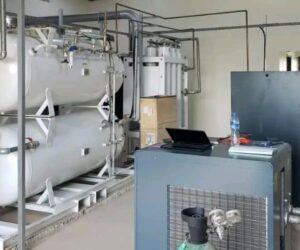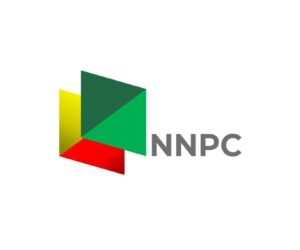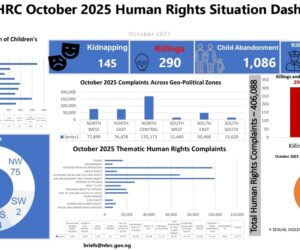The Network for Health Equity and Development (NHED) and the Corporate Accountability and Public Participation Africa (CAPPA) have declared support for the National Agency for Food and Drug Administration and Control (NAFDAC) over its decision to enforce the ban on the production and sale of alcoholic drinks in sachets and small bottles by December 2025.
The public health advocacy organisations said the ban, first announced in 2024, was a “long overdue” measure to protect children, young people, and other vulnerable groups from harmful alcohol exposure.
The position was contained in a joint statement on Sunday, signed by CAPPA’s Media and Communication Officer, Robert Egbe.
Sachet ban
Earlier this month, NAFDAC reaffirmed its commitment to enforce the ban on the production and sale of alcoholic beverages in sachets, PET bottles, and small bottles below 200ml by December 2025.
The Director-General of NAFDAC, Mojisola Adeyeye, made the announcement at a press briefing in Abuja, following a directive from the Nigerian Senate instructing the agency to implement the ban fully and rule out any further extensions.
The ban, which covers spirit drinks packaged in sachets and containers below 200ml, is supported by the Federal Ministry of Health and Social Welfare.
Public Health Intervention
NAFDAC has repeatedly argued that the products, widely sold for as low as N100 are linked to escalating cases of underage drinking, domestic violence, road crashes, addiction, and other social vices.
The agency said the ban forms part of wider efforts to curb the rising misuse of cheap alcoholic drinks among youths and commercial drivers.
NHED and CAPPA endorsed this stance, accusing manufacturers of deliberately using low pricing, attractive packaging, and aggressive marketing to push high-concentration alcohol into communities, especially among minors.
Job loss
The Manufacturers Association of Nigeria (MAN) criticised the enforcement of the policy, claiming it could trigger the loss of up to five million jobs and undermine investment in the sector.
The public health groups, however, dismissed these assertions as exaggerated and a familiar scare tactic used by alcohol and tobacco corporations globally.
According to the organisations, the production process for sachets and small-format alcohol is largely mechanised and does not sustain the scale of employment claimed by the manufacturers.
“We reject in its entirety the claims by MAN that the ban will trigger a loss of over N1.9 trillion in investment and lead to the retrenchment of over 500,000 workers,” the groups said.
“These figures are inflated, unverifiable, and designed to pressure the government into prioritising commercial greed over public health.”
Phase-Out Timeline
NHED and CAPPA noted that NAFDAC gave companies a multi-year window to phase out the products after the ban was announced in 2024.
The transition period ends in December 2025. Despite this privilege, they said several manufacturers continued production in defiance of the directive.
They accused industry actors of weaponising economic misinformation to blackmail regulators rather than engaging constructively with evidence-based public health policies. Such conduct, the organisations added, was irresponsible, deceptive, and unbecoming.
Children safety
NHED’s Technical Director, Jerome Mafeni, said the long-term social and economic burden of alcohol misuse, including health costs, loss of productivity, and rising violence, far outweighed the short-term financial benefits cited by the industry.
Mr Mafeni said it was unacceptable that children could purchase high-concentration alcoholic products for as little as N100, noting that the harms disproportionately affect poor and marginalised communities, which sachet alcohol specifically targets.
Corporate Bullying
The Executive Director of CAPPA, Akinbode Oluwafemi, said NAFDAC’s decision aligned with global best practices and reflected what responsible governments worldwide are doing to reduce alcohol-related harm.
Mr Oluwafemi said no credible public health agency would allow the continued marketing of alcohol in packaging designed to encourage unrestricted, on-the-go, and underage consumption.
He called on the Federal Ministry of Health and Social Welfare, the Ministry of Finance, the Standard Organisation of Nigeria, and the National Orientation Agency to work with NAFDAC to ensure seamless enforcement of the ban.
Call for Presidency and National Assembly
NHED and CAPPA urged President Bola Tinubu and the National Assembly not to bow to pressure from manufacturers seeking to suspend, weaken, or delay the policy.
Beyond the ban, the groups called for broader alcohol-control measures, including higher taxes, strict marketing restrictions to protect children, clearer labelling, and nationwide sensitisation on alcohol-related harm.
The organisations insisted that the long-term costs of alcohol misuse, such as healthcare spending, family breakdowns, reduced productivity, and premature deaths, far outweigh the economic arguments advanced by manufacturers.










